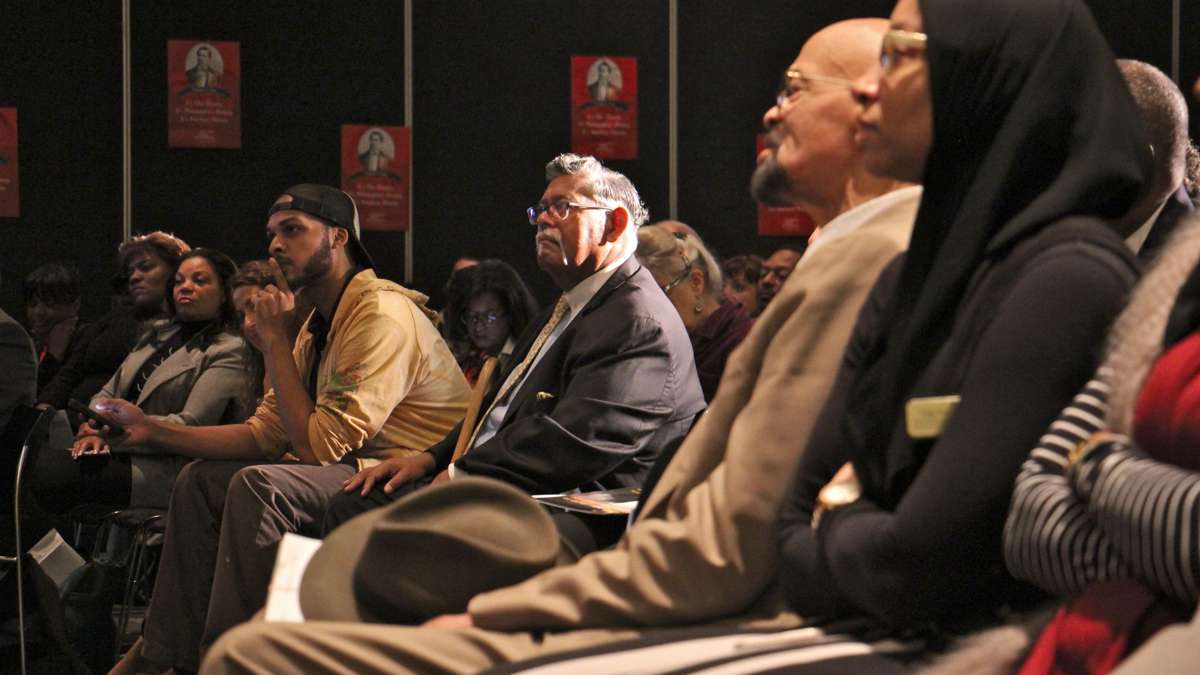Philly celebrates Octavius Catto who was assassinated on Election Day 1871 [photos]
To mark the last day voters can register in Pennsylvania, the mayor of Philadelphia joined a discussion about a little-known civil rights activist from the 19th century.
ListenTo mark the last day voters can register in Pennsylvania, the mayor of Philadelphia joined a discussion about a little-known civil rights activist from the 19th century.
Octavius Catto was a black teacher in Philadelphia who rallied the African-American vote a century before Dr. Marthin Luther King Jr.
In 1871 he, too, was assassinated.
Ninety-five years before the March on Selma, where African-American activists mobilizing the black vote were met with violence, Ocatvius Catto was doing the same thing in Philadelphia. In the spring of 1870, about 10,000 people gathered on Race Street to parade and listen to speakers, Catto being one of them. The next year, on Election Day 1871, he would be shot dead in the street.
Speaking at the Philadelphia Community College, Mayor Jim Kenney said he keeps a portrait of Catto over his desk (“I want him looking over my shoulder”) and is awaiting the installation of the only statue of an individual black person on public land in the city. Octavius Catto should take his place outside City Hall next year.
“The fact that it’s on public space is significant,” said Kenney. “It’s finally acknowledging what this man did and what other people did to make the city, state, country a great — not great, it’s not the greatest place — the thing it is today. We’ve got a lot of problems. And I’ll make a political statement: This country will be saved again by African —Americans.”
Kenney is a Democrat, and there he is presuming African-Americans turn out to vote in November in large numbers enough to defeat Donald Trump.
Kenney may never have heard of Catto were it not for a recently published biography, “Tasting Freedom,” by Philadelphia journalists Daniel Biddle and Murray Dubin. As part of their research they found a descendent of Catto, who warned the authors not to get too focused on Catto because there were a hundred other people just like him.
“The truth of those words grew and grew on Murray and me as we continued our research,” said Biddle. “We discovered all these lives, men and women of Catto’s generation, who put their bodies on the line in the battle for civil rights, 80, 90 years before the modern civil rights movement.”
Biddle said Catto stood out because he was the whole package: a radical but peaceful activist, a dedicated teacher, good-looking, charismatic, and a really good baseball player.
WHYY is your source for fact-based, in-depth journalism and information. As a nonprofit organization, we rely on financial support from readers like you. Please give today.







